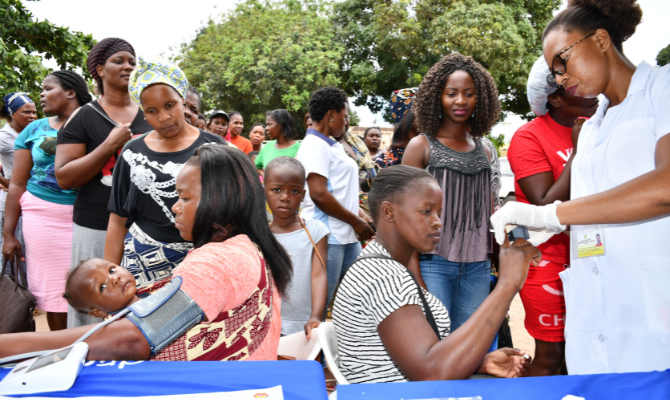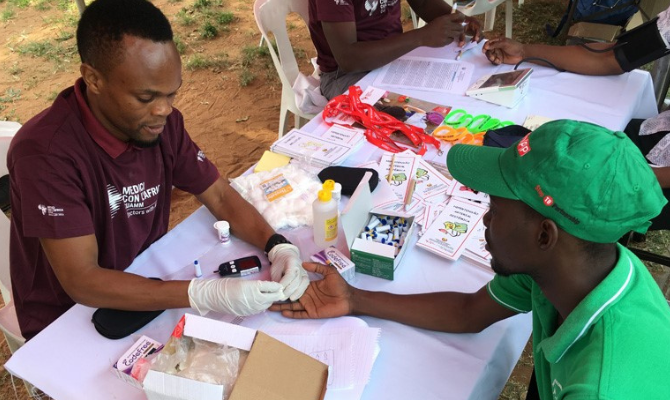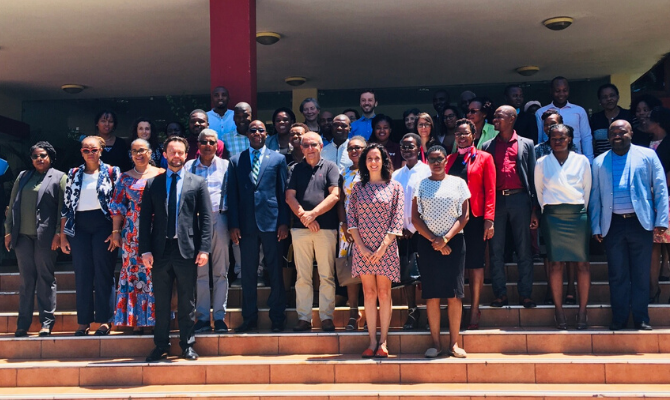Insidious, but preventable and treatable, non-communicable diseases (NCDs) are constantly increasing in Mozambique, posing a heavy burden on the health care system. To draw attention to the problem, on researches carried out, on good practice implemented and on the important teamwork developed among different participants, Doctors with Africa CUAMM organized in Maputo, in Mozambique, the International Conference: “Diabetes and Hypertension: access and treatment for chronic patients”. On Tuesday the second of August this conference brought together in a participated discussion institutions and chronic disease experts with whom CUAMM cooperates to promote initiatives set out to prevent and treat diabetes and hypertension in Mozambique.
This initiative has been included in the project of “Prevention and control of non-communicable diseases” in Maputo and in the provinces of Sofala and Zambezia, financed by the Italian Agency for Development Cooperation and realized in partnership with the Sant’Egidio Community and AIFO. This project sets out to reinforce the responsiveness of the Ministry of Health to the rising incidence of non-communicable diseases in the Country, by developing an action aimed at improving early diagnosis and treatments in terms of quality and quantity. The project is now in its final year of implementation, for this reason, the event was also an opportunity to highlight some of the innovative results and good practices achieved during the three-year period in three provinces across the Country.
41,345 people have been screened for diabetes, 377,758 for hypertension, of these, 1,555 people have been diagnosed with diabetes and 12,470 with hypertension. Furthermore, 54,352 visits to patients with diabetes and hypertension were made and 243 health workers were trained on diagnosis and management of chronic patients.
Participation to the conference exceeded all expectations and the three sessions of presentations of ideas, cases and proposals were very successful. At the end of the day a panel discussion was held, which the Ministry of healthcare and major stakeholders present in Mozambique attended. The focus was to figure out how to concretely and decisively contribute to the achievement of the goals laid out in the 2030 Agenda for Sustainable development and to ensure the health and wellbeing of everyone regardless of age.
“Chronic diseases need a new model of care” reiterated Giovanni Putoto, Head of research and programming at Doctors with Africa CUAMM. There have been different interventions highlighting the necessity of an integrated approach to chronic patients who takes into consideration diabetes and hypertension patients’ needs, but, most importantly, incorporates taking care of the chronic patient into the strategies of the Ministry of Health to give a concreate response to the growing number of people diagnosed with diabetes and hypertension in Mozambique. “During the project a lot of studies have been conducted, but among the most important is certainly the one about the cost to the health system of a patient with diabetes and hypertension”, recalled Elio Giombini, Head of the AICS Health Sector. “The study will provide important evidence to support the fight against NCDs that Mozambique’s Ministry of Health has initiated”.
“We have to accelerate and be even more determined”, insisted Raquel Mahoque of the WHO during the panel affirming that it was necessary to have a multi-sector approach, involving the private sector and the diabetes and hypertension patients’ organizations. In agreement with this approach were also Bent Lautrup Nielsen of the World Diabetes Foundation, who insisted on the necessity of creating partnerships with the Ministry of Health, and Ana Olga Mocumbi of NCDI Poverty Network who strongly emphasized the importance of networking among institutions.
This is why pursuing a common agenda is fundamental to improve the quality of life of Mozambican chronic patients especially because, as the Ministry of Health representative reminded everyone at the beginning of the Conference: “the majority of non-communicable diseases is avoidable and controllable”.
The work of Doctors with Africa CUAMM in Mozambique is demonstrating that this is possible.





